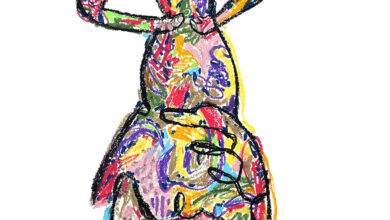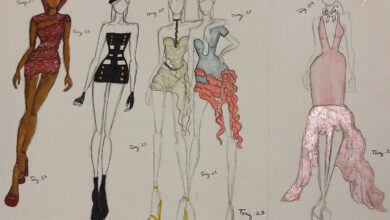Zoot Magazine takes a tour of the archive of the Trieste-based ITS# competition.
Text by Anna Battista
Famous for its Viennese architecture, coffee houses and artists and philosophers who frequented it – James Joyce, Sigmund Freud and Italo Svevo included – Trieste has become internationally renowned in the last few years also for a popular fashion competition, ITS#.

The tenth edition is taking place this weekend and while designers are preparing for their final catwalk show and for the jury verdict, Zoot Magazine took a trip through the ITS# Archive. The latter preserves portfolios, designs and accessories by the young designers who took part in the competition throughout the years.
Fabric folders containing information about designers and winners decorate the walls of the main office together with little mementos sent in by the winners from their countries of origin, while designs by Mikio Sakabe, Michael Van der Ham, Takahashi Nishiyama and Courtney McWilliams are showcased on the staircases outside the archive office to welcome the visitors.
The archive preserves pieces from different editions of the competition: as a whole there are roughly 180 outfits stored here, together with accessories, photos and neatly stacked boxes filled in with participants’ portfolios.
Among the designs preserved in the archive there are also the monster-like pieces by Yang Du, a dress made with dolls’ hair by Yael Ben Ari and Ek Thongprasert’s coats inspired by Antoine de Saint-Exupéry’s The Little Prince accompanied by felt masks of elderly men. The accessory section features instead Yuima Nakazato’s futuristic kinetic pieces, a metal necklaces by Valentim Manuel Estevao Quaresma, leather headpieces by Rob Goodwin, Emma Yeo’s etherel wooden headdresses and Chau Har Lee, Joanne Stoker and Juultje Meerdink’s architectural shoes.
Zoot was particularly happy to spot in the archive pieces from designers the magazine interviewed for both its printed and online editions such as Ankur Gupta and Karisia Paponi.
The ITS# Archive acts as a mini-museum, but it also has a practical function: the ITS# team studies the portfolios and files them, highlighting specific trends, moods and inspirations and, if required, it also puts in touch fashion houses that may turn to them asking for help with young designers.

There aren’t any plans at the moment to open the archive to the public or to turn them into a museum, but it wouldn’t be a bad idea to see some of these pieces travelling in an itinerant exhibition that could bring all over the world the creativity of the young designers who took part in this competition in the last few years.




























